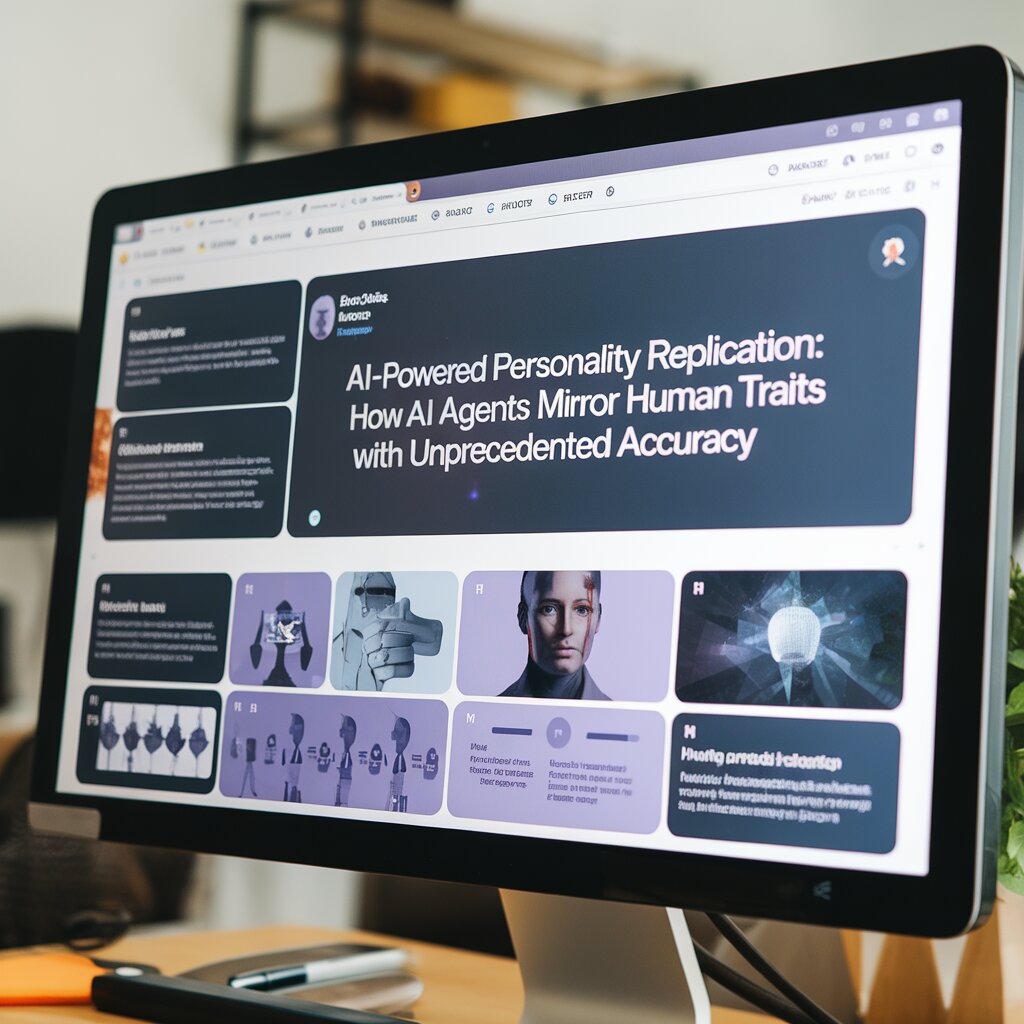In a fascinating study that underscores the evolving capabilities of artificial intelligence, researchers from Google and Stanford University have demonstrated that a mere two-hour interaction with an AI model is sufficient to create a highly accurate replica of an individual’s personality. This groundbreaking research, published on November 15 in the preprint database arXiv, delves into how AI can closely mimic human behavior, offering both remarkable opportunities and significant ethical considerations.
The team’s ambitious project involved creating “simulation agents” for over a thousand participants. These AI replicas were crafted after conducting detailed two-hour interviews, during which participants shared their life stories, opinions, and values. The objective was to train a generative AI model designed to emulate human conduct, capturing nuances often overlooked by traditional surveys or demographic data.
To assess the fidelity of these AI duplicates, participants were asked to complete a series of personality tests, social surveys, and logic games, not once but twice, with a two-week interval in between. The AI agents replicated the same exercises, matching the human responses with an impressive 85% accuracy. While the AI showed exceptional performance in personality tests and social attitude assessments, its predictive abilities waned slightly in tasks that required a deeper understanding of social dynamics, such as economic decision-making games like the Dictator Game and the Trust Game.
The implications of such technology are profound. The researchers propose that AI models capable of simulating human behavior can become invaluable in a range of research contexts. They argue that these models could offer new insights into public health policy effectiveness, consumer reaction to product launches, and societal response to major events. By providing a controlled virtual environment free from the complexities and ethical implications of human subject research, these AI agents could revolutionize how researchers develop social theories and test new interventions.
However, the study does not shy away from addressing potential pitfalls. The misuse of AI and deepfake technologies for deception and manipulation is a well-documented concern. The creators of these simulation agents are acutely aware that their invention could be exploited for malicious ends. Nevertheless, they advocate for the responsible use of this technology, which could otherwise democratize access to an unprecedented laboratory setting for studying human behavior on a scale that was previously unimaginable.
As AI continues to blur the lines between artificial simulation and human reality, this study stands as both a testament to the power of modern technology and a reminder of its ethical challenges. The coming years will undoubtedly see further developments, requiring a balanced approach to harness the full potential of AI while safeguarding society from its possible misapplications.


